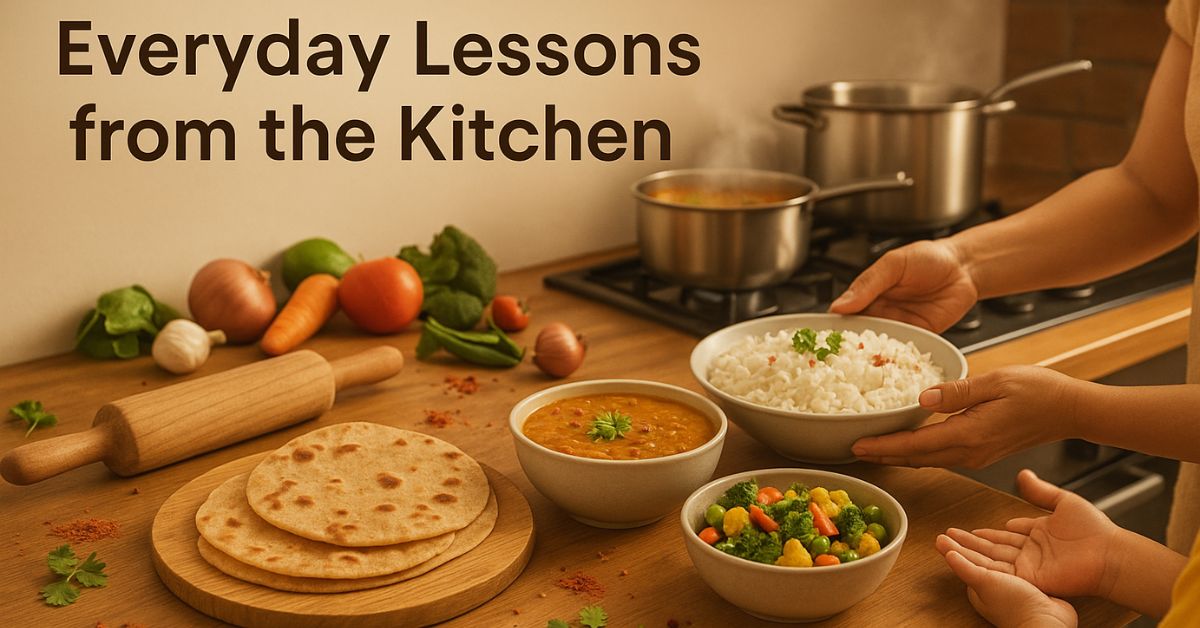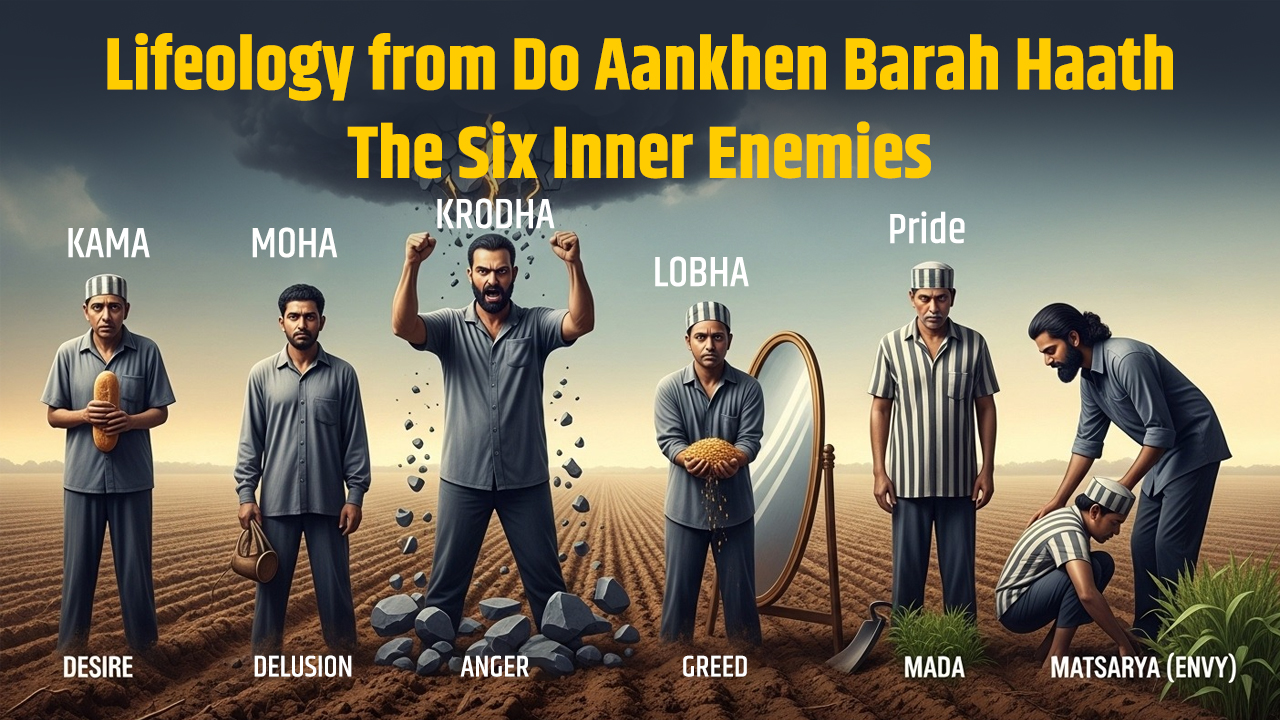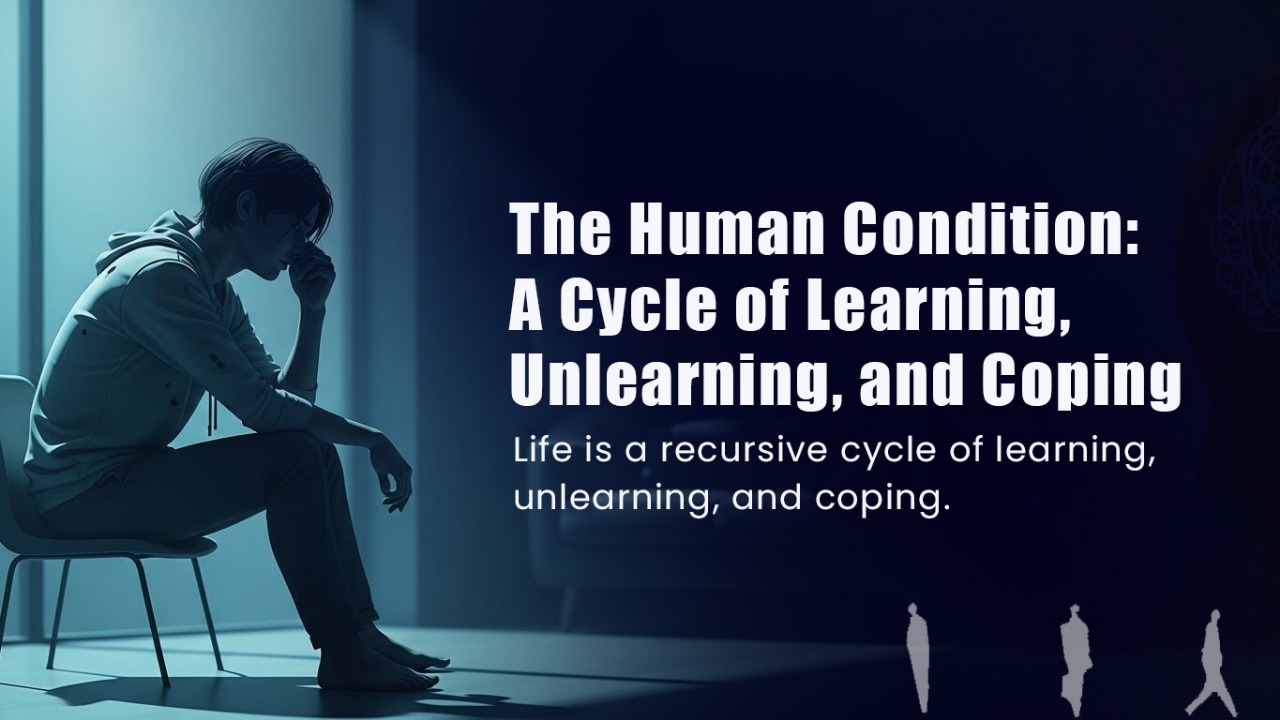How cooking teaches us about living
Life as a Practice, Not a Performance
The first time I tried cooking on my own was in my hostel room. The kitchen was a cramped corner, its single gas burner wobbling on a steel counter. I had no recipe—only a hazy memory of how my mother kneaded dough at home. The rotis I rolled came out like burnt maps—blackened continents curling at the edges.
My roommate laughed, I sulked, and the smoke crept into the corridor until the warden banged on the door. That night, embarrassed but hungry, I ate every misshapen piece. And in that simple act, I learned something: life is not about getting it right the first time. It’s about trying, failing, and trying again.
But the real lessons came later—not just in that hostel corner, but in the everyday kitchensof life: the morning rush for tiffins, the endless rhythm of dal and rice, the festive chaos before a wedding, and the quiet love folded into chapatis. The kitchen became more than a place to cook. It became a mirror. And in its heat, mess, and repetition, it taught me how to live.
Lifeology, as I call it, is the art of seeing these everyday moments as metaphors. It’s the habit of asking: What is this moment teaching me about how to live? From smoky hostel kitchens to my later years, the lessons of cooking have become recipes for living.
Lessons from the Kitchen
Work With What You Have
Open any Indian kitchen: some days it’s stocked with vegetables and spices; other days there’s only rice, a potato, and a jar of pickle. Still, a meal gets made. Life is much the same. We rarely get perfect conditions—sometimes we have plenty, sometimes very little. The lesson is to create with what is available. Meaning is not found in ideal circumstances, but in our ability to turn scarcity into sufficiency.
Practice Matters More Than Perfection
Reading recipes doesn’t make you a cook. Rolling rotis, burning the first few, and learning the right heat—that’s how you learn. In life too, wisdom doesn’t come from theory. It comes from showing up, trying, failing, and trying again. Skill is forged in practice, not in perfection.
Mistakes Add Flavor to Growth
Too much salt in the dal. Rice sticking to the bottom of the pan. A curry that refuses to thicken. Every cook has these stories. Mistakes in the kitchen don’t end the meal—they shape it. Life’s mistakes work the same way. They aren’t final verdicts; they are feedback. Each one teaches us to adjust, adapt, and improve.
Presence Is the Secret Ingredient
A chapati puffs only when watched closely. Turn away too soon, and it burns. Flip too early, and it stays flat. Presence makes all the difference in cooking—and in life. Attention is a form of love. Whether it’s food on the stove or a person in front of us, being fully there changes everything.
Some Wisdom Can Only Be Felt
A recipe may tell you how long to cook biryani, but only your nose knows when the aroma is perfect. In life too, some truths can’t be measured. Empathy, timing, and intuition—these must be felt, not calculated. Not everything worth knowing fits into instructions.
Effort Always Shapes Us
You may knead dough carefully and still end up with uneven rotis. That doesn’t mean your effort was wasted. It built your patience, your strength, and your resilience. Life is similar. We can’t control every outcome, but effort always changes us—for the better.
Feeding Is Love Made Visible
In every home, food is more than fuel—it is care. A mother packing a tiffin, a friend sharing the last sweet, a neighbor sending kheer across the fence. Feeding is a quiet way of saying, “You matter.” The kitchen reminds us that love is not always spoken; it is served.
Creation Happens in Chaos
Before festivals or weddings, kitchens are a storm—pots clanging, spices scattered, voices calling across the room. It looks like disorder, yet from it comes a feast that nourishes everyone. Life is messy too. But beauty doesn’t wait for calm. It is created right in the middle of chaos.
Nourishment, Not Performance
Most meals are simple—dal, rice, roti, and sabzi. They may not impress, but they sustain. Life is the same. The goal is not applause but nourishment—quiet acts of care that keep us and others going.
Repetition Builds Foundations
Dal-chawal today. Idli-sambar tomorrow. Chapati and sabzi the next day. Over and over, the meals repeat. It may seem ordinary, but repetition is what keeps families alive and together. So it is with life. The repeated small acts—checking in, saying thank you, showing up—becomethe strongest foundations of love and stability.
Stirring Life
The kitchen teaches us to:
- Work with what we have.
- Learn through practice.
- Treat mistakes as feedback.
- Offer presence as care.
- Trust intuition when rules fail.
- Value effort even without control.
- Show love through small acts.
- Create amid chaos.
- Nourish rather than perform.
- Build life on repetition.
Cooking is not about perfection. It is about nourishment—of body, mind, and heart. And life is the same.
Final Thought
The next time you stir a pot, scorch a chapati, or repeat an ordinary task, pause. Ask yourself: What lesson is life teaching me right now? Because in the end, life is not a performance. It is a practice—messy, nourishing, and quietly magnificent.









Leave a Reply